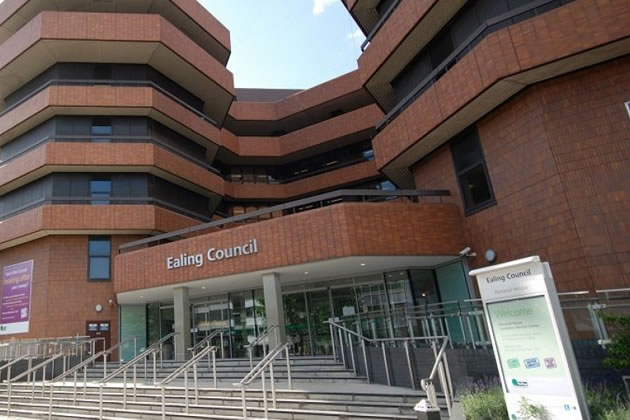Bills for residents could increase by over 3% from April

Ealing Council's main office at Perceval House
Ealing Council’s cabinet is set to consider a proposal to increase Council Tax in the borough by the maximum level allowed.
The final decision on the rise will be made on 1 March when the full council meets but the draft Medium Term Financial Strategy envisages an increase of 2.99% of which 1% would be the social care precept which would raise £1.5million which could only be spent on providing social car for adults. Ealing spent nearly £84million on adult social care last year and around 60p in every £1 that it spends goes towards supporting adults and children.
The council is obliged by law to balance its budget and additional grant funding from central government is predicated on the council raising tax levels by the full amount. Over two thirds of councils are considering implementing the maximum increase.
The rise for Ealing residents will be over 3% because of the larger percentage increase in the Mayor’s precept. Bills from this April will increase by over £70 a year for those with a property rated in Band D.
A council tax support scheme that provides up to 100% discount on bills to the most vulnerable will remain in place. Around 16,500 working age Ealing residents, and 7,400 pensioners, currently receive help paying their council tax through this scheme.
Like all local authorities, Ealing Council has seen its core government grant slashed since 2009 while seeing.
The council says that a reduction in the core government grant, the COVID-19 pandemic, and its legacy on jobs and local businesses, has placed extra pressure on already stretched council finances. Demand for high-cost services, such as adult social care and services for children with special educational needs and disabilities, is rising. Inflation is currently at a 30-year high, meaning that it costs the council more to provide the same services, and the cost-of-living crisis is anticipated to result in more local people turning to the council in crisis.
Councillor Steve Donnelly, cabinet member for decent living incomes, said: “We want to do everything in our power to help our communities, particularly hard-up households, who bore the brunt of the pandemic and are now on the frontline of the cost-of-living crisis. Now, more than ever, we need to make sure that our services can support and protect them as much as possible.
“When government announced their financial settlement for local councils, they made it clear that a 1.99% rise, plus their 1% social care precept, was part of the plan. With this built into government calculations, we are left with some tough choices. Unfortunately, after 10 years of government cuts, inflation at a 30-year high, and with more people needing our help, we must consider raising council tax.”
Councillor Peter Mason, leader of Ealing Council, said, “We expect more people than ever to turn to us for help in the coming year and, when they do, we want to be in the best possible shape to support them and keep them safe, which is why we are considering this rise.
“Everyone was affected in their own way by the pandemic and lockdowns, but we know that hard-up people on zero hours contracts and Black and ethnic minority households were hit particularly hard.
“The community rightly expects us to provide support when they need it, but we have been left once again with a short-term, inadequate and unreliable funding settlement. This leaves us vulnerable to shocks and unprecedented events like COVID-19. It also makes it incredibly difficult to plan long-term, especially for high-cost, complicated services such as social care.”
Like Reading Articles Like This? Help Us Produce More This site remains committed to providing local community news and public interest journalism. Articles such as the one above are integral to what we do. We aim to feature as much as possible on local societies, charities based in the area, fundraising efforts by residents, community-based initiatives and even helping people find missing pets. We've always done that and won't be changing, in fact we'd like to do more. However, the readership that these stories generates is often below that needed to cover the cost of producing them. Our financial resources are limited and the local media environment is intensely competitive so there is a constraint on what we can do. We are therefore asking our readers to consider offering financial support to these efforts. Any money given will help support community and public interest news and the expansion of our coverage in this area. A suggested monthly payment is £8 but we would be grateful for any amount for instance if you think this site offers the equivalent value of a subscription to a daily printed newspaper you may wish to consider £20 per month. If neither of these amounts is suitable for you then contact info@neighbournet.com and we can set up an alternative. All payments are made through a secure web site. One-off donations are also appreciated. Choose The Amount You Wish To Contribute. If you do support us in this way we'd be interested to hear what kind of articles you would like to see more of on the site – send your suggestions to the editor. For businesses we offer the chance to be a corporate sponsor of community content on the site. For £30 plus VAT per month you will be the designated sponsor of at least one article a month with your logo appearing if supplied. If there is a specific community group or initiative you'd like to support we can make sure your sponsorship is featured on related content for a one off payment of £50 plus VAT. All payments are made through a secure web site. |
February 2, 2022